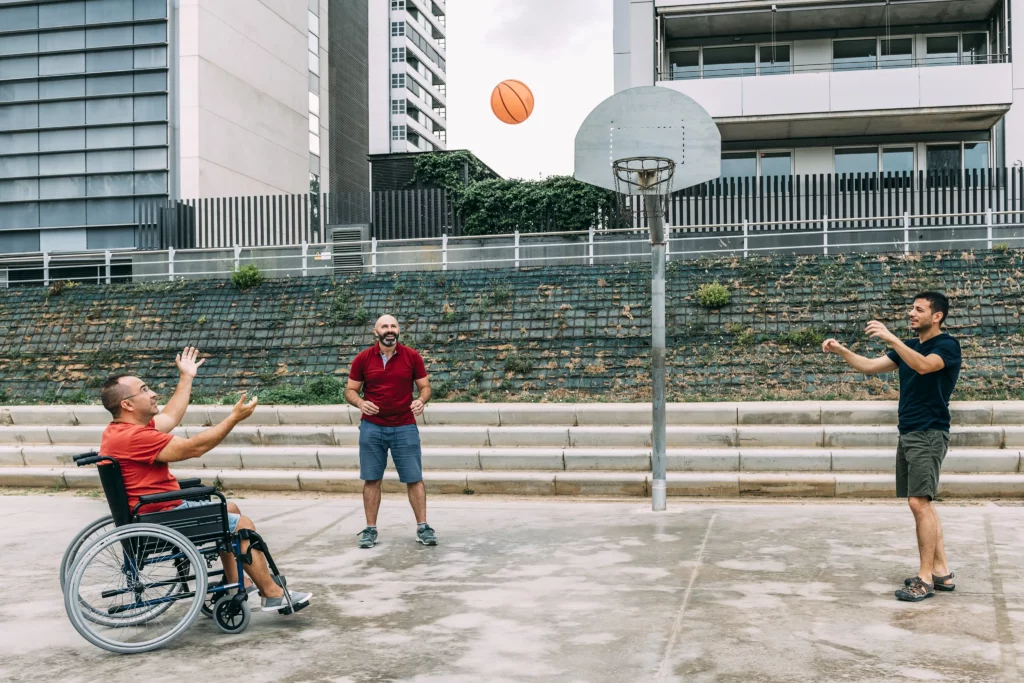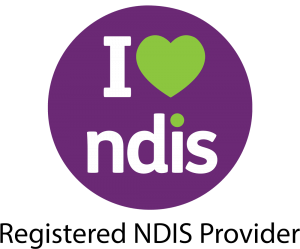Imagine you’re late to an appointment but the bus stop is too far, and taxis can’t help you (due to a physical disability).
For NDIS participants who can’t use public transport, it can feel more than just an inconvenience; it can stop you from living your life.
It limits the freedom you have to do what you want and be where you want to be.
According to the Australian Human Rights Commission, 1.2 million people with disabilities still report difficulties using public transport despite constant effort and progress to make it fully accessible.
But what if a special fund exists just to help you pay for better and more accessible travel options? This is where NDIS Transport Funding comes in.
With this government transport assistance, NDIS will give you more than just a way to get around. It also aims to make you feel fully included and truly cared for.
Now the question is — how much NDIS transport funding are you really entitled to? Stick around and we’ll tell you everything you need to know about this life-changing support system.
So how much NDIS transport funding are you actually entitled to?
NDIS transport funding can feel overwhelming, especially when it comes to understanding the types of allowances you can get. There are three different levels of transport support, each with defined qualifications and set budget (info updated October 2023):
Level 1: Up to AUD 1,606 yearly
For those who aren’t working or in school and want to be more involved in their community.
Level 2: Up to AUD 2,472 yearly
For those who work or study part-time of no less than 15 hours per week, or are involved in daytime programs and social activities like sports.
Level 3: Up to AUD 3,456 yearly
For those working, job-hunting, or studying at least 15 hours a week and can’t use public transport due to a disability.
Special cases are considered and you might get more money if you need extra help to work, based on the funded aids in your NDIS plan.
Do these tickets expire?
You might be wondering if these ‘tickets’ have an expiry date.
The answer is yes; your NDIS package is reassessed yearly. Always keep an eye on your specific package details, especially when a new funding year is about to roll around.
By understanding these different ‘bus tickets,’ you can make more informed choices about how best to use your NDIS transport funding.
So pay attention to your package details, especially when changes occur. It could make all the difference.
How to make your claim

Now that you know how NDIS Transport Funding can make your life easier, you’re probably wondering what’s next — how can you get your hands on the actual funds?
It might look complicated at first, especially if you’re new to this. However, once you understand the steps, it becomes far less intimidating.
Let’s walk through the process one detail at a time.
Step 1: save all receipts and records
Firstly, hold on to all your receipts.
Whether it’s for a bus ticket, a taxi fare, or petrol costs for your support worker, each receipt is important.
These slips are your evidence for the expenses and are essential for justifying your claim later on.
Step 2: itemise your expenses
With your collection of receipts in hand, sort them by date and type of transport.
This step may seem tiresome, but it’s beneficial for the next stages. Organising your expenses this way lays the groundwork for a smoother claims process.
Step 3: fill in the necessary forms
Now comes the paperwork.
Locate the required claim forms, usually available on the NDIS website or from your plan manager.
Download and fill them out in careful detail. Make sure you review everything multiple times to avoid any errors that might delay your claim.
Step 4: submit your claim
With your forms complete and your sorted receipts ready, you can proceed to submit your claim.
You can generally do this online which is convenient, but if you’re more comfortable with sending it by post, that’s an option too.
Whichever method you choose, just double check that you’ve included all required documents.
Step 5: wait, but not too long
Once the claim is submitted, you’ll be in a waiting period.
While processing times can vary, you should receive a response within a few weeks.
To ease your mind a bit, you can often track your claim status online.
Step 6: money in the bank
Upon approval, the funds will be transferred directly to your account within 24 to 48 hours.
You’ll be notified of this, so monitor your emails closely. Finally, you can let out that sigh of relief for successfully going through the claim process.
Quite simple, right?
There you go, a detailed breakdown of making your claim for NDIS Transport Funding.
Each step may seem small, but collectively, they lead to the satisfying end of receiving your deserved funds.
What you can claim
So, you’ve got some NDIS Transport Funding at your disposal. The natural question is, what now?
While you might be tempted to claim every Uber trip in sight, it’s important to know the specifics. After all, no one likes surprises when it comes to their finances.

Transport to therapy sessions
When you’ve got a regular appointment with your physiotherapist or speech therapist, for example, NDIS has you covered.
The key here is that these appointments need to be in line with your NDIS plan. So if you need to go to your allied health services provider for an occupational or physiotherapy session, you can claim the transport costs.
This also includes specific medical consultations, such as visits to a neurologist if you have a neurological condition.
Special training courses
Suppose you’ve decided to take up a hobby that’ll help with your personal or even professional growth, like a pottery class that enhances your motor skills.
As long as it’s part of your NDIS plan and aids in reaching your goals, the transport to these special courses can be claimable.
Vocational activities
If you’re in a work placement or internship that aligns with your NDIS goals, then yes, you can claim the transport costs for getting there and back.
The rationale here is simple:these activities are aimed at helping you gain work experience, thereby supporting your financial independence, which is often a key goal in NDIS plans.
Educational facilities
Heading to school or college? If it’s in your NDIS plan as part of your developmental goals or life-skills acquisition, then you can claim those daily commutes.
This is part of the broader objective of making education accessible to everyone, no matter their disability.
Group sessions for social or mental well-being
These could range from group therapy sessions to community participation activities aimed at better social integration or mental health.

If attending these sessions is part of your NDIS plan to improve your quality of life or mental well-being, the transport for this is claimable as well.
The core thread running through all of these is that they need to align with your NDIS plan’s goals. As long as that’s the case, you should be in the clear for claiming transport costs.
What you can’t claim
Before you go on a claiming spree, let’s set some boundaries. Because not everything falls under the NDIS umbrella, despite how good that might sound.
Some activities are considered outside the perimeter of NDIS funding
The caveats:
Social visits
Say you’re invited to a weekend gathering at a friend’s house. While social inclusion is a big deal, this kind of activity is generally not covered.
The funding aims to support activities that align directly with your NDIS goals. So, a casual weekend hangout wouldn’t qualify for a transport claim.
Grocery shopping
Imagine it’s Saturday, and you’re planning your weekly shop. While getting groceries is vital, the trip to the supermarket isn’t covered under the NDIS transport funding.
The rationale is that this activity doesn’t specifically relate to your disability support needs as outlined in your NDIS plan.
Doctor’s appointments
Let’s say you have a dentist appointment next week. You might think, “Hey, it’s a health-related trip; surely it’s claimable!”
But hold on; general health appointments like dental visits usually don’t qualify. So, you’d need to look for other means of covering those travel costs.
It’s necessary to cross-reference these appointments with your NDIS plan to make sure they align with your stated goals and outcomes.
Listed below are the NDIS funding criteria your transport support requirements must meet:
- It’s related to your disability.
- It goes beyond regular day-to-day expenses.
- It’s a worthwhile investment.
- It aids in achieving your NDIS goals and increases your community involvement.
- It’s too much to rely solely on your usual support network.
- NDIS is your only source for this financial assistance.
Have you left any money on the table?

You’ve got your NDIS plan in hand. Great start. But have you squeezed every last penny out of it?
It’s a question worth asking, because understanding your NDIS transport funding is similar to knowing all the stops on your bus route.
Miss one stop, and you might just miss your destination.
So, don’t just skim through those pages and nod. Get into the nitty-gritty. Maybe even seek advice from professionals who know the ropes.
A quick consultation could be the difference between making the most of your funding and leaving valuable benefits untouched.
Think of it as a financial health check-up, but for your NDIS plan. Worth the time, wouldn’t you say?






